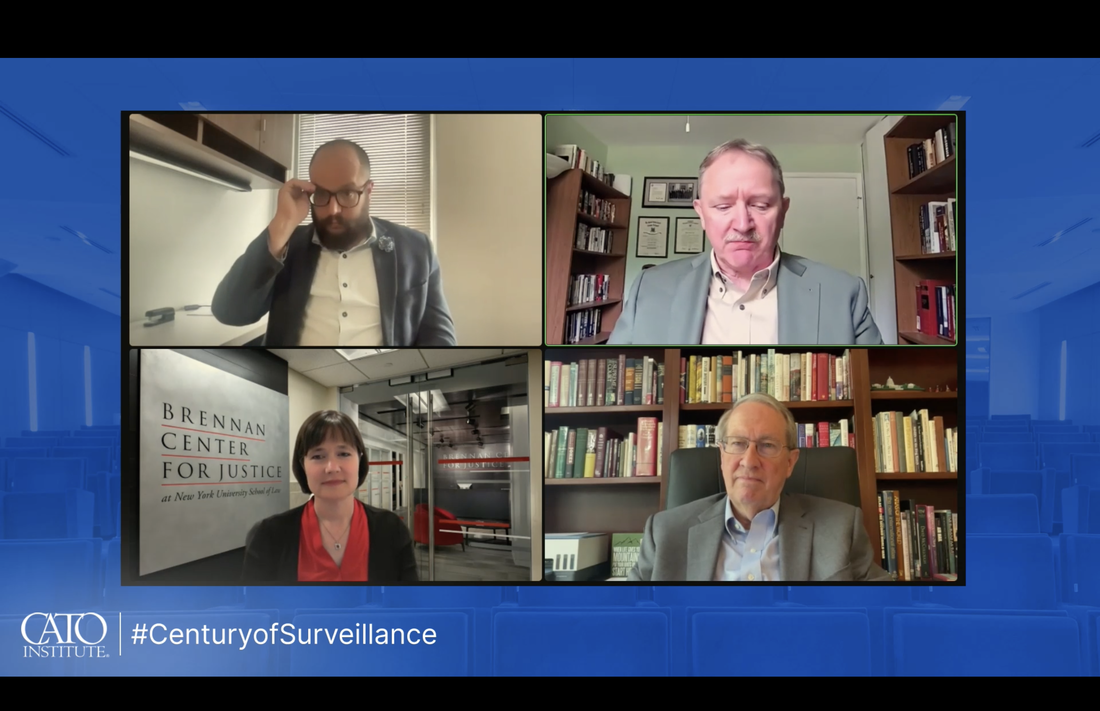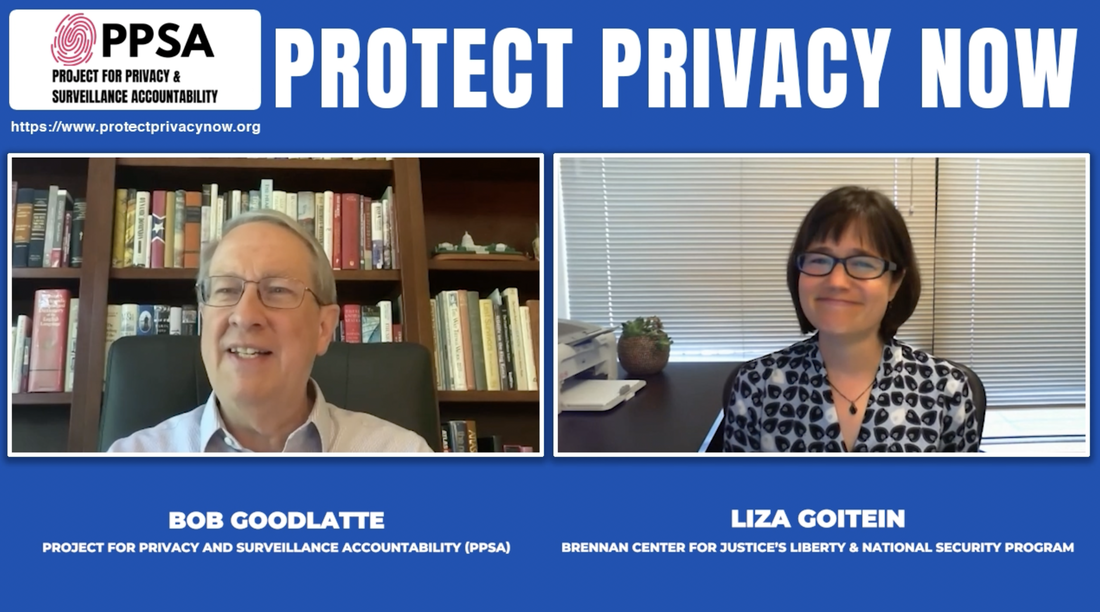|
Byron Tau – journalist and author of Means of Control, How the Hidden Alliance of Tech and Government Is Creating a New American Surveillance State – discusses the details of his investigative reporting with Liza Goitein, senior director of the Brennan Center for Justice's Liberty & National Security Program, and Gene Schaerr, general counsel of the Project for Privacy and Surveillance Accountability.
Byron explains what he has learned about the shadowy world of government surveillance, including how federal agencies purchase Americans’ most personal and sensitive information from shadowy data brokers. He then asks Liza and Gene about reform proposals now before Congress in the FISA Section 702 debate, and how they would rein in these practices. Four Surveillance Experts Explain Ever wonder why Congress doesn’t do a better job of oversight of the intelligence community and its vast, unaccountable surveillance system that spies on us?
The answer, says Bob Goodlatte, former chairman of the House Judiciary Committee and PPSA Senior Policy Advisor, is that the security clearances held by Members are meaningless if the executive branch restricts what they are allowed to see. And some Members have become too close to the agencies they are tasked with overseeing to do their job objectively. Another factor in weakening Congressional oversight is that many Members of Congress are deeply reliant on staff to dig into intelligence reports, analyze what they are reading, and come away with critical insights into the surveillance activities of U.S. federal intelligence and law enforcement agencies. In the House, most Members do not even have staffers with high levels of security clearance to perform this function. Thus, free of strong Congressional oversight, federal agencies “spy first, ask for forgiveness later,” says Jake Laperruque of the Center for Democracy and Technology. As a result, Laperruque says, “violations are epic in scale.” When federal agencies are caught stretching or breaking the laws they respond with a charade of addressing rule-breaking with tighter rules. Thus, Laperruque adds, agencies follow a tried-and-true formula of “violate, tweak rules, repeat.” These are just some of the nuggets from an hour-long conversation between Goodlatte, Laperruque, Liza Goitein of the Brennan Center for Justice, in a discussion moderated by Cato Institute senior fellow, Patrick Eddington. Watch and you will learn about the origins of foreign surveillance authorities used by agencies to spy on Americans, as well as why Bob Goodlatte believes that simply allowing one of them, Section 702, to expire would be a mistake. (Go to 36:00 mark). Mark Udall, former U.S. Senator from Colorado and PPSA Senior Policy Advisor, interviews two senior attorneys from the American Civil Liberties Union (ACLU), Ashley Gorski, and Patrick Toomey, about Section 702 of the Foreign Intelligence Surveillance Act.
Sen. Udall says Section 702 was intended by Congress to be a tool to catch foreign spies and terrorists, not to be used for domestic spying. Patrick Toomey notes that it has been used millions of times by the FBI to spy on Americans. Hear:
Finally, hear a review of how Section 702 must be reformed before Congress can consider reauthorizing it. Listen to a discussion about the ways our government spies on us and what we can do about it this year. This is a talk between Bob Goodlatte, former Chairman of the House Judiciary Committee and PPSA Senior Policy Advisor, and Sean Vitka, Senior Policy Counsel for Demand Progress.
PODCAST PREMIERE - EPISODE ONE: How The Government Snoops On You By Buying Up Your Personal Data6/7/2022
A conversation between former House Judiciary Chairman Bob Goodlatte and Liza Goitein of the Brennan Center.
|
Categories
All
|



 RSS Feed
RSS Feed